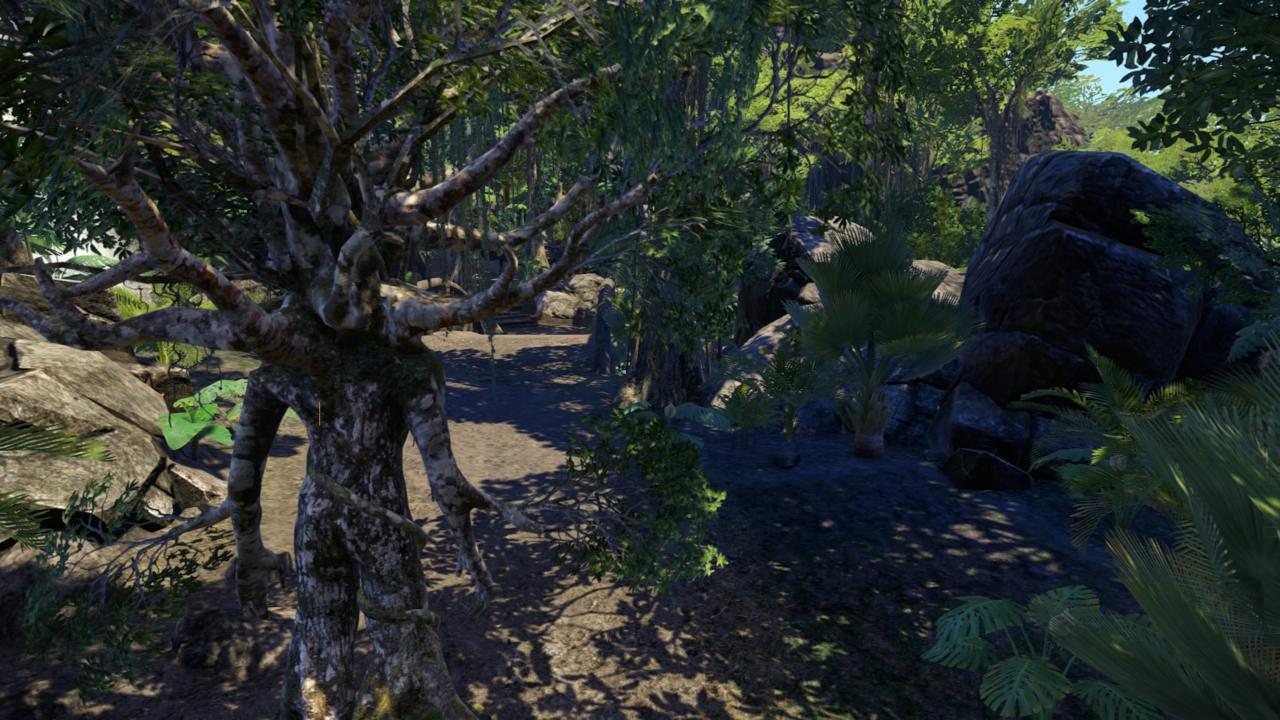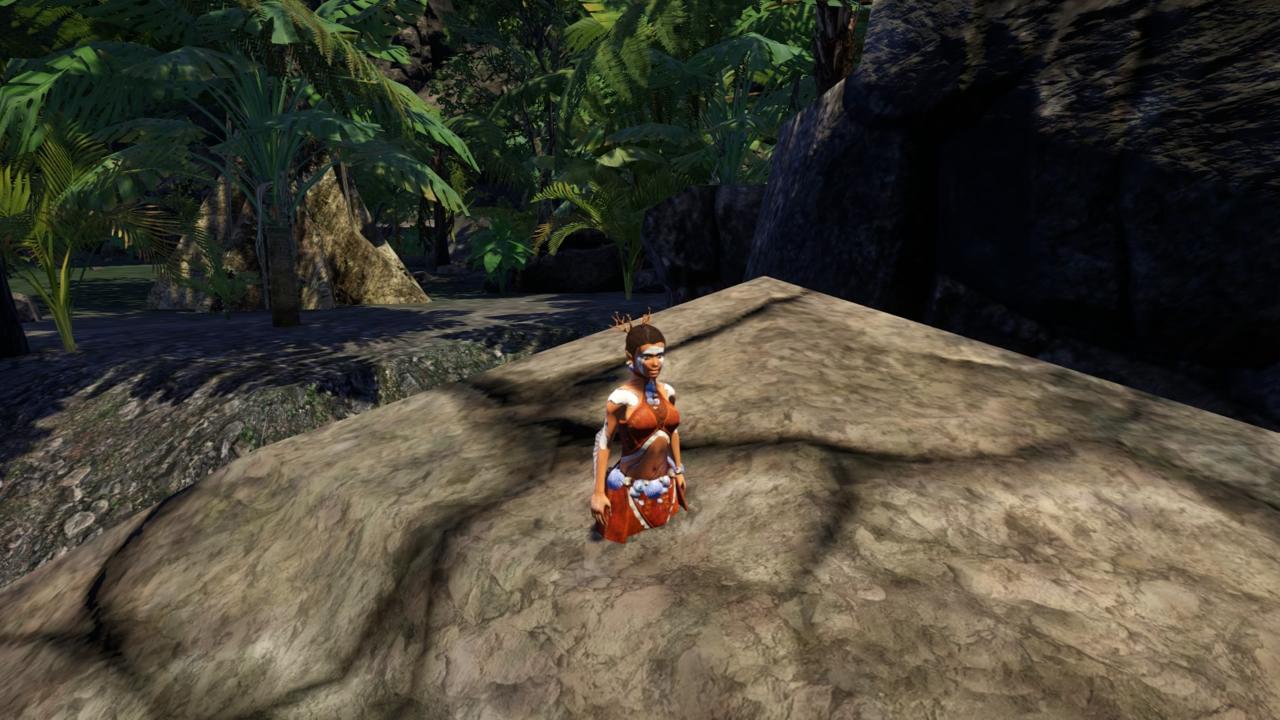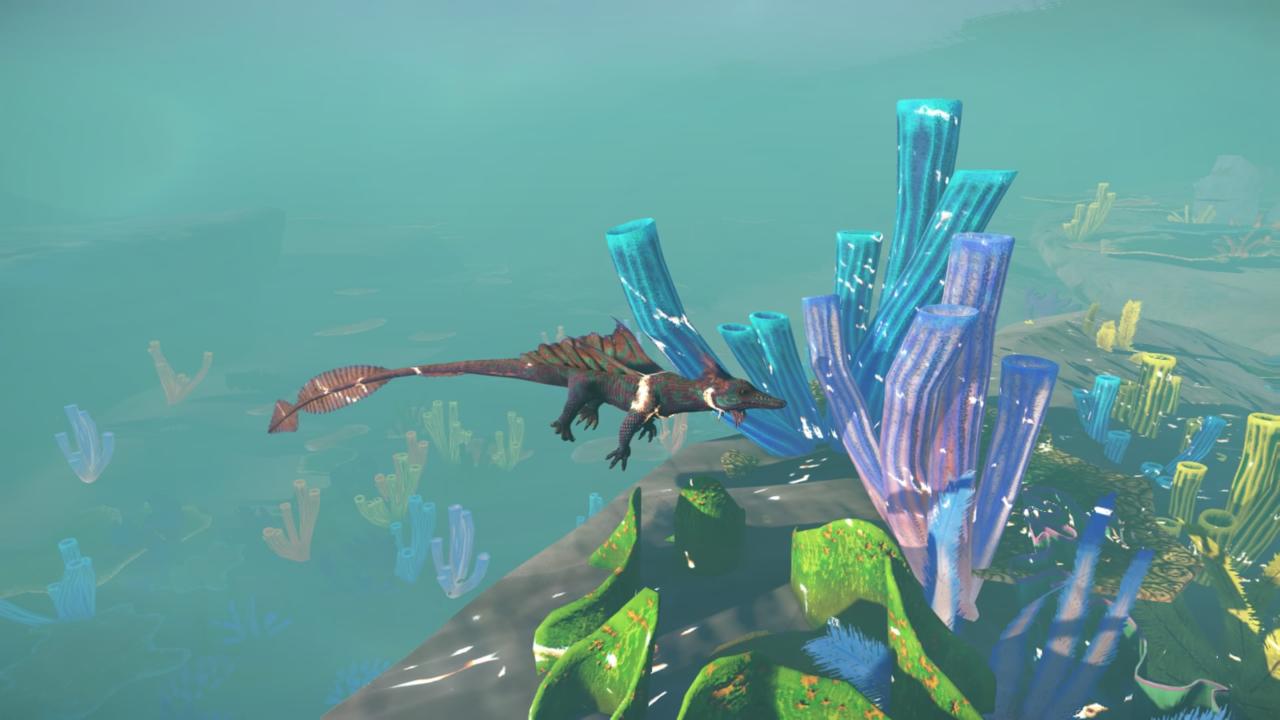Unlike other massively multiplayer games, Wander does not begin with you tuning sliders and picking palettes to create a character or accepting a fetch quest from a non-player character, because neither of those options exist. Nor do you have to kill ten of X, because combat or creatures are nowhere to be found. The only to-do list is the list of achievements, most of which read like chores. Wander focuses on exploration and wants to be a refreshing new contender, yet it’s nothing more than a glitchy, boring mess.
Instead of embracing the aforementioned genre standbys, Wander starts you off playing as a humanoid tree creature known as an Oren. This Tolkien-inspired being moves around the island at a grueling pace trying to find a transformation stone as soon as possible. The forest floor only has a few paths at the beginning, yet you can still find a dead end, requiring you to backtrack at the speed of a turtle. The game, whose sole purpose is exploration, penalizes you for doing just that in the first five minutes.

Once finding the stone in a nearby cave, the Oren shrinks and becomes a Hira: a nimble figure with fins that act as a wingsuit. Once you transform, there’s no reason to even think about returning to your prior ineffective form. However, shortly after freeing myself from the Oren’s fetters, the game crashed, and I knew this would be an unpleasant walkabout.
As a Hira, you can glide like an ice skater, walk under water, stop time, and burrow through earth. Oh wait--those are movement glitches, bugs, not features. The graphics are another imperfection. Although it was made with CryEngine, Wander looks like an extension of Playstation Home. Textures are flat and dull, if they even load at all. Trees and vegetation flicker in and out of existence as they sway in the coastal breeze. Ponds vanish, and you swim through the air and on dry beds of rock. The plants farther down the road are identical to the ones that came before, and my eyes glazed over scanning the thick brush for something unique or captivating. Each summited outcropping teases a view of a breathtaking landscape, but disappointment sinks in every time. The Hira is a marooned sailor destined to die from monotony on an island prison.

Wander’s narrative is supplied via lore stones, which are similar to the audio logs found in games like Bioshock. These rocks provide meaningless blurbs discussing flora and fauna rather than any actual story or plot. After finding the first lore stone, the map room is unlocked. In this cave, you can also switch between four different forms, such as an aquatic lizard or a flying griffin, at will. However, the relief map itself is useless without a “You Are Here” marker.
In addition to the lore and transformation stones, pillars give the gift of speech. Each found stone lets players speak necessary words, like “hello,” and extremely specific terms that you will never need to utter, like “thermal.” You say sentences by drawing the corresponding glyph on the DualShock’s touchpad and hoping the gods accept your handwriting. Chances are they won’t. Thankfully, there’s an alternative method, but it requires cycling through each individual gleaned word on the D-pad. Then, when the controller is idling on the coffee table, random words will sound without any input--not to mention, the same tutorial for the Rozhda language system plays, even if it’s your tenth time finding a glyph. The touchpad is also used to summon fireflies, but they never heeded my call, so I can only guess at their function. Luckily, I didn’t find any chatty players, so I was never forced to piece together a fragmented phrase from an obtuse mechanic.

The only respite provided in Wander is the lovely soundtrack composed by Benjamin Woodgates. The soothing vocals contrast with the grating gameplay and give life to the vacant land. However, the music rarely plays, and most sounds that graced my ears were the chirping of invisible wildlife. Otherwise, Wander is a sandbox constructed from rotted wood that lacks toys. Without character customization or any semblance of proper communication, the game has nothing to offer in place of its sacrifices. Like Sisyphus on a treadmill, I fruitlessly walked around in hopes of discovering something worthwhile. Unless this game can find its way, discovery will remain a lost cause.